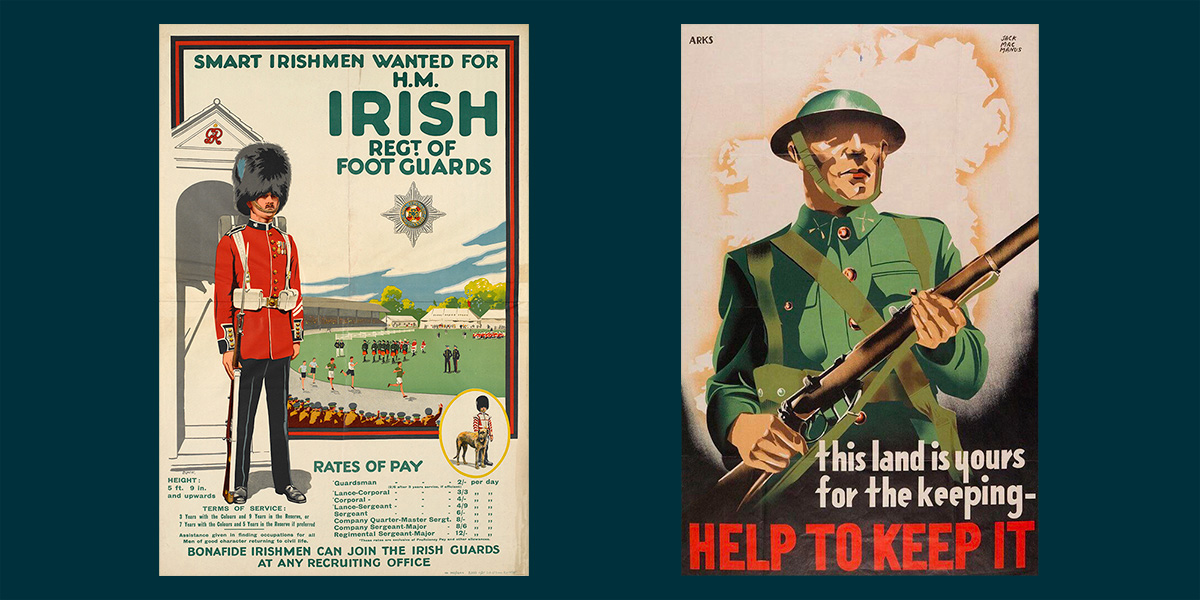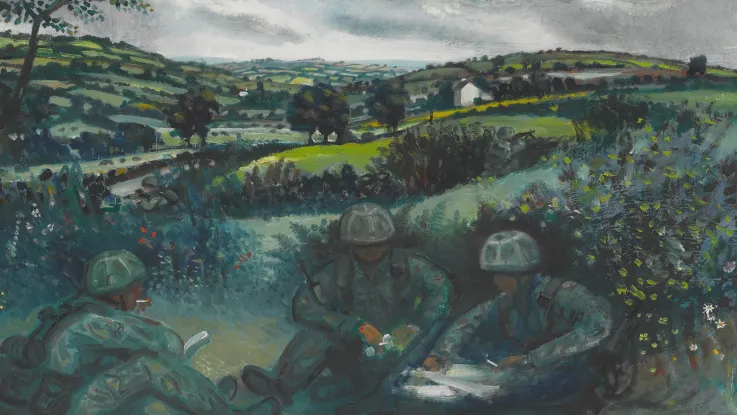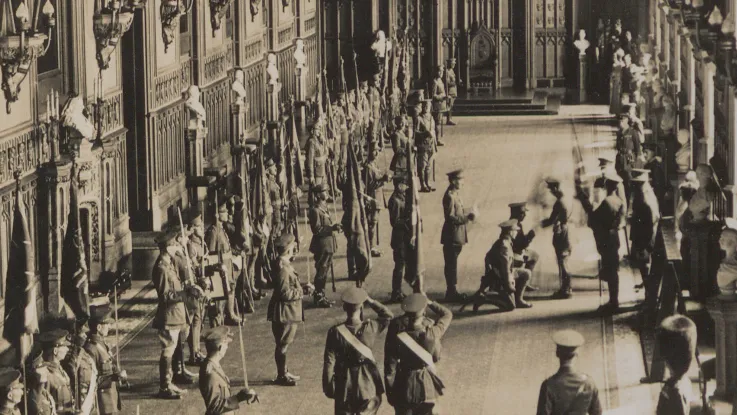A Dual Military Tradition

Recruiting posters for the Irish Guards and the Irish Defence Forces
Join Joseph Quinn as he discusses Irish service in the Irish Defence Forces and the British Army from 1922 to 1945.
Attend in person:
- To attend this event in person, book your ticket here
Watch online:
- To watch this event online, register on Crowdcast
- Get help accessing events on Crowdcast
In February 1922, the National Army of the new Irish Free State was established under the terms of the Anglo-Irish Treaty.
The nucleus of this new army was formed from a cadre of IRA membership who had accepted the treaty. However, a certain proportion of its new recruits, along with a substantial number of IRA officers and volunteers who joined its ranks, were Irishmen who had served in the British Army during the First World War.
The first tests for this newly formed army would not be easy. The Civil War that spread across Ireland was compounded by the growing fear of a coup d’etat in 1924 as military leaders become ever more disgruntled with sudden cuts to their forces.
In this talk, Dr Joseph Quinn will explore the role of former British Army soldiers in the foundation of the Irish Defence Forces in 1922. He will also examine how a rapid decline of the Irish military in the 1920s and ‘30s contributed towards a drift of Irish personnel and ex-servicemen to the British armed forces, establishing a growing trend of desertion from the Irish Army and maintaining the tradition of Irish service in the British Army long after independence.
About Joseph Quinn
Dr Joseph Quinn is a leading historian on the history of Britain and Ireland during the Second World War. He is a producer and host of 'The Irish Military History Podcast', and has contributed to 'The Irish Times'. He is also the Project Coordinator Outreach, Networking & Media on ‘Their Finest Hour’, a project at the University of Oxford.
Explore further



